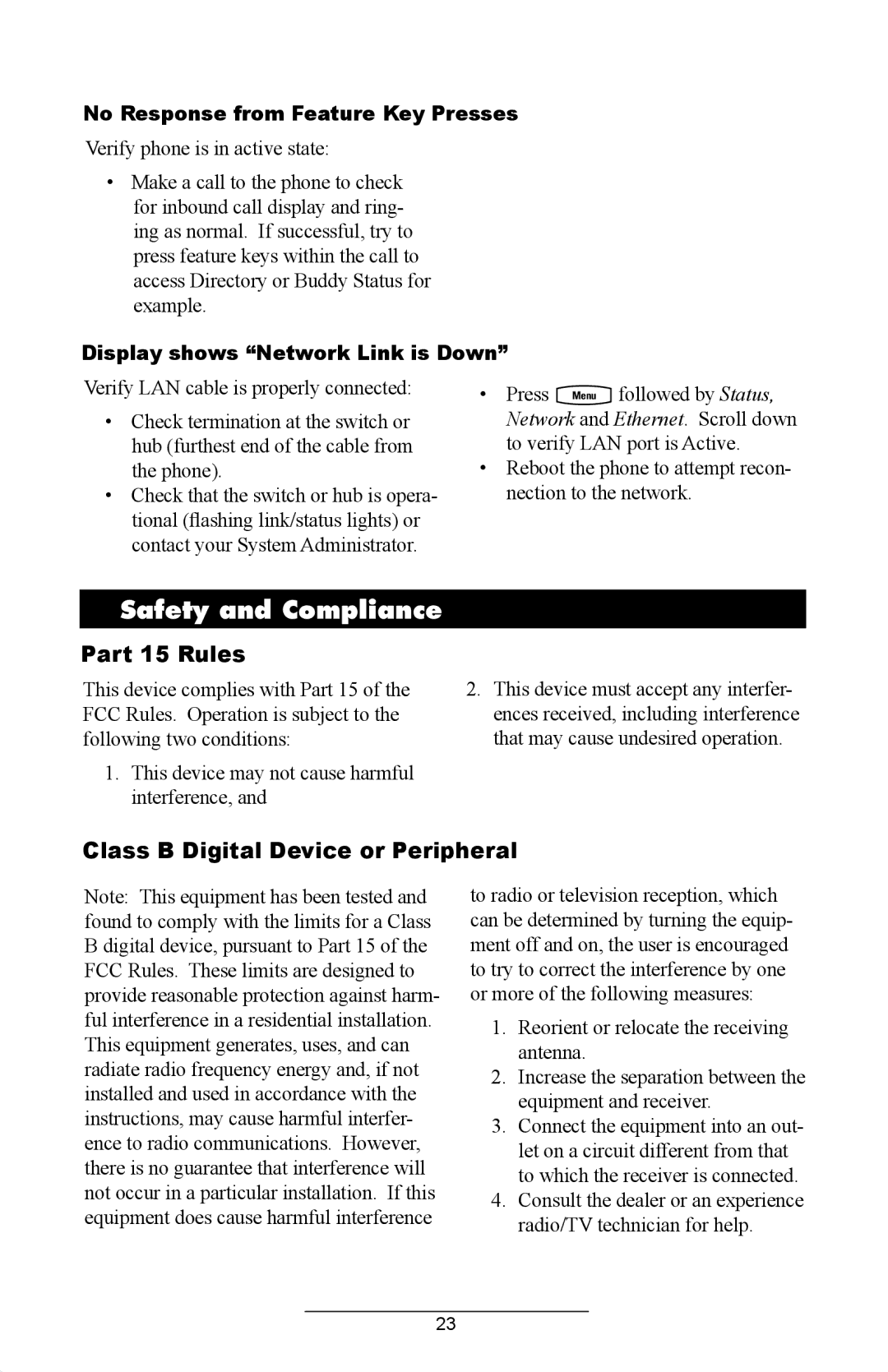
No Response from Feature Key Presses
Verify phone is in active state:
•Make a call to the phone to check for inbound call display and ring- ing as normal. If successful, try to press feature keys within the call to access Directory or Buddy Status for example.
Display shows “Network Link is Down”
Verify LAN cable is properly connected:
•Check termination at the switch or hub (furthest end of the cable from the phone).
•Check that the switch or hub is opera- tional (flashing link/status lights) or contact your System Administrator.
• Press Menu followed by Status, Network and Ethernet. Scroll down to verify LAN port is Active.
•Reboot the phone to attempt recon- nection to the network.
Safety and Compliance
Part 15 Rules
This device complies with Part 15 of the FCC Rules. Operation is subject to the following two conditions:
1.This device may not cause harmful interference, and
2.This device must accept any interfer- ences received, including interference that may cause undesired operation.
Class B Digital Device or Peripheral
Note: This equipment has been tested and found to comply with the limits for a Class B digital device, pursuant to Part 15 of the FCC Rules. These limits are designed to provide reasonable protection against harm- ful interference in a residential installation. This equipment generates, uses, and can radiate radio frequency energy and, if not installed and used in accordance with the instructions, may cause harmful interfer- ence to radio communications. However, there is no guarantee that interference will not occur in a particular installation. If this equipment does cause harmful interference
to radio or television reception, which can be determined by turning the equip- ment off and on, the user is encouraged to try to correct the interference by one or more of the following measures:
1.Reorient or relocate the receiving antenna.
2.Increase the separation between the equipment and receiver.
3.Connect the equipment into an out- let on a circuit different from that to which the receiver is connected.
4.Consult the dealer or an experience radio/TV technician for help.
|
|
| 23 |
|
|
VoIPon www.voipon.co.uk | sales@voipon.co.uk | Tel: +44 (0)1245 808195 | Fax: +44 (0)1245 600030 | ||
